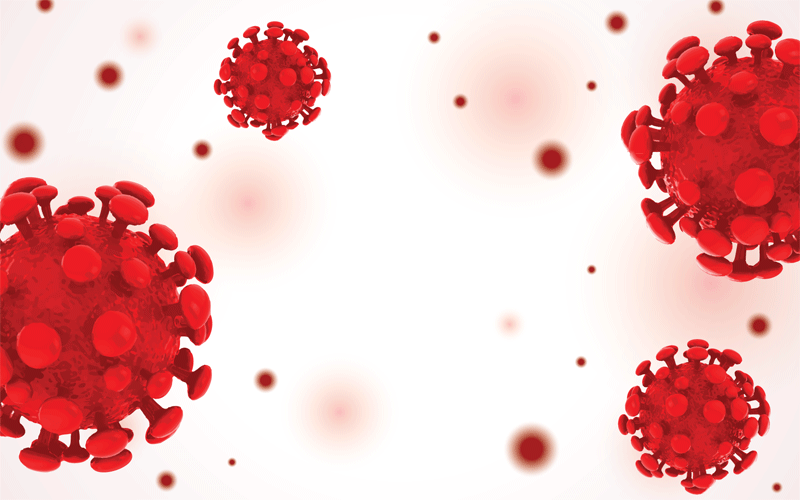Reemerging COVID-19 Early Precautionary Measures
The last couple years, frankly, were a nightmare. What with the inset of the global pandemic:COVID-19, everyone was forced into the sanctuary of his or her homes. Month after month of endless suffocation led to the disruption of all sectors of the country: health, economy, education, transport; so on and so forth.
After finally having got through that drastic time period, the world was once again able to start functioning as normal, slowly, and everything seemed to be going well for a while. Unfortunately, like a boomerang returning to its origin once thrown away, the deadly variant is back again.
COVID-19Symptoms
The virus spreads from person to person. When an infected person coughs or sniffles, tiny droplets of virus-containing moisture escape from the nasal passages and/or mouth. Infection may occur if these droplets fall on a surface and are touched by someone else, who then touches his or her nose, mouth, or eyes. While signs of the virus vary from drastic to mild in different populations around the world, the most prevalent symptoms include breathing difficulty and fever with a sore throat. Coughing, sneezing, and loss of taste and smell could also be an indication of this virus having infiltrated your body. Apart from this, other symptoms to be aware of include aches and pains, headaches, a rash on the skin, and discoloration of the toes and fingers.
Variants
Every virus undergoes gradual evolution, including COVID-19's causative agent, SARS-CoV-2. Certain viral characteristics, such as how quickly it spreads, or the effectiveness of vaccines, therapeutic drugs, or other community health measures, could be impacted by certain changes. SARS-CoV-2 is one of many viruses that develops over time and will do so as long as it is spread. Variants of the viral infection may occasionally appear. When a virus differs from the original virus in at least one way, it is said to be a variant.
Coronavirus variants like Delta and Omicron are spreading more quickly among individuals.
Latest Rise in Numbers
The rise of virus variant Omicron BA.5, which is significantly more transmittable than its predecessors and is able to overcome existing immunity in many people, is largely to blame for the global upsurge in COVID-19 cases lately. The number of cases is rising across all of Europe, including, but not limited to, Germany, Italy, and Greece. The United Kingdom has seen an increase as well. Particularly in India, South Korea, and Japan, Asia is experiencing an increase in cases. Regrettably, Sri Lanka is not an exception.Dr. Anwar Hamdani, Director of Medical Technical Services and Chief Coordinator for COVID-19 at the Health Ministry, reports a slight increase in the number of COVID-19patients identified in Western Province and some other provinces.
Habits of Precaution
Dr. Anwar Hamdani further emphasized that wearing face masks, maintaining social distance, limiting unnecessary movements, and minimizing gatherings are all required health recommendations that the populace should resume following. The doctor advised getting the fourth dose of COVID-19 vaccines as soon as possible because the Health Ministry has enough vaccine stockpiles, adding that people with chronic diseases over the age of 60 ought to be more concerned about vaccination because they are more likely to experience complications from this condition. In addition to this, it would be better to avoid crowded areas and poorly ventilated areas.
Avoid crowded areas and enclosed spaces without access to fresh outdoor air if you are more likely to become seriously ill from COVID-19. Maintain daily health checks. Keep an eye out for COVID-19 symptoms, such as fever, coughing, and shortness of breath. It's crucial to keep an eye on your symptoms when you're out and about, entering a building or place of employment, or in other situations where it might be challenging to maintain a physical separation of about 6 feet. Put on a mask. Regardless of vaccination status, everyone ages 2 and older should wear a well-fitting mask in public indoor settings when the COVID-19 Society Level is high. Use a mask that fits, protects, and is comfortable for you. The proper use of a well-fitting mask or respirator is required in all interior areas of public transport and transportation hotspots for people age 2 and older, especially in crowded or inadequately ventilated areas.
Excited to read more? Get Lanka Woman in Magzter for our latest Digital Issue!
www.magzter.com/.../Lanka.../Women's-Interest/530905
www.lw.lk

Leave a reply
Reply To:
Name - Reply Comment


Comments